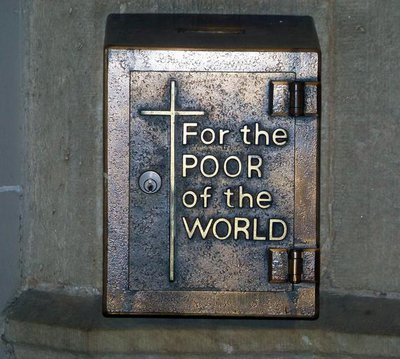Thoughts for the Day
Friday, 10th November 2023: The difficult parable - 1
Luke 16 Jesus Parable Poor
Reading : Verses from Luke, Chapter 16

Then Jesus said to the disciples, ‘There was a rich man who had a manager, and charges were brought to him that this man was squandering his property. So he summoned him and said to him, “What is this that I hear about you? Give me an account of your management, because you cannot be my manager any longer.” Then the manager said to himself, “What will I do, now that my master is taking the position away from me? I am not strong enough to dig, and I am ashamed to beg. I have decided what to do so that, when I am dismissed as manager, people may welcome me into their homes.” So, summoning his master’s debtors one by one, he asked the first, “How much do you owe my master?” He answered, “A hundred jugs of olive oil.” He said to him, “Take your bill, sit down quickly, and make it fifty.” Then he asked another, “And how much do you owe?” He replied, “A hundred containers of wheat.” He said to him, “Take your bill and make it eighty.” And his master commended the dishonest manager because he had acted shrewdly; for the children of this age are more shrewd in dealing with their own generation than are the children of light.
(Lectionary, New Revised Standard Version)
Thoughts
This is a difficult parable, but one worth looking at. It's often called. 'The parable of the dishonest steward', and it's divided into two sections. We look at the first section today. Luke places this after the three 'lost' parables in the previous Chapter (Luke 15.1-24) where he has been talking to the twelve disciples and those closest to him, with an "aside" regarding the Pharisees, whom Jesus has criticised in the past for their love of money. This parable is odd in that all the characters are down-right wicked, from the manager to the debtors, and even to the owner of the property.
The manager seeing his time is up finds a quick way to make a bit more money, by cheating his master who was likely also overcharging his customers anyway, and in doing so making some friends for the future by cutting the debtors' bills. Jesus is not saying we should act like these characters. What he is saying is that 'the people of this age' (that is non-believers) are more shrewd at ensuring their own safety, than the 'children of light' (believers) are at planning for the world they believe is to come. The manager did everything he could to achieve a good outcome for his future.
The question is, as the 'children of light' are we as good at planning for our future? Are we good at "laying up treasure in heaven" (Matthew 6.19-20). Are we looking after our soul, as well as our body?
Prayer
Lord Jesus Christ,
help us to be as conscientious
in laying up treasure in heaven
as we are in caring for our future on earth
May we hold the twin commands
that You gave us -
to love God and our neighbour
ever before us -
and seek to live a life
that is worthy of Your love.
Amen.
Here is a children's choir from Cardiff singing a hymn based on today's theme: